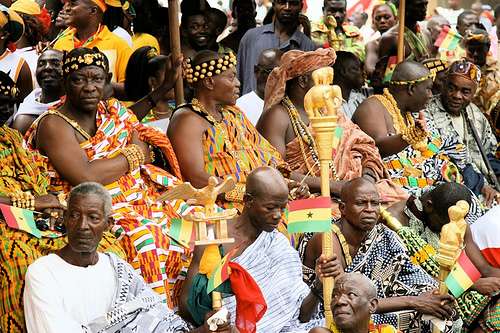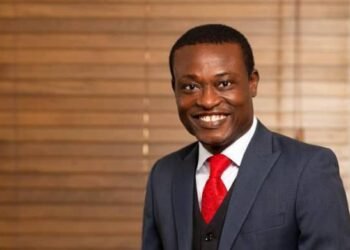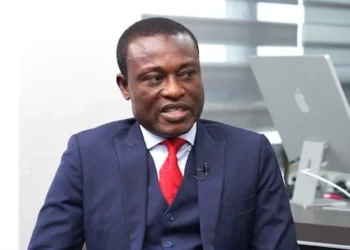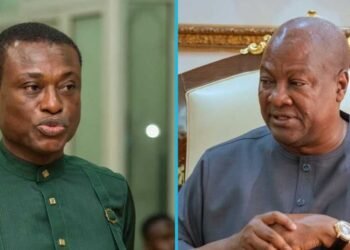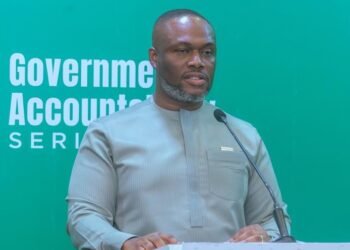Dr. Kwasi Amakye-Boateng, a political scientist, has indicated that the practice of traditional leaders endorsing political parties during elections is an interesting development.
Dr. Amakye-Boateng noted that the country is still struggling to understand how traditional institutions and modern political institutions should coexist side by side as the country continues to build its institutions.
He noted that Ghana is obviously undergoing changes and is increasingly becoming a modern society, though some traditional practices will continue to remain relevant even in the country’s current situation.
“So, one of the areas where we continue to have challenges is chiefs endorsing political leaders. Ordinarily, we realize that the Constitution acknowledges the existence of our traditional political institutions and also the fact that they have the right to play the roles that they play”.
“They are not encouraged to be partisan. It is so established for very good reasons. It is to ensure social cohesion generally and also politically to create an enabling environment, a leveled playing field for all political activities. Because the traditional leaders are overloads of their areas and politicians will want to visit every part of the country”.
Dr. Kwasi Amakye-Boateng
As such, Dr. Amakye-Boateng maintained that if a chief endorses a political party, it has implications, as it puts a strain on the rights of the people under the chief to participate in political activities if they do not support the endorsed party.
He noted that once a chief endorses a certain political party and its leader, it prevents other political parties from making their usual courtesy calls on the chief.
The political scientist also indicated that the public, including traditional leaders, must acknowledge what happens if the political parties endorsed by chiefs do not win the election.
As such, he maintained that it is in the interest of traditional leaders to remain as neutral as possible and find better ways to express their personal preferences without imposing them on the communities they serve.
Traditional Leaders To Remain Neutral
Furthermore, Dr. Kwasi Amakye-Boateng noted that, given the significant roles traditional leaders play in settling disputes that arise after elections, they do not need to declare their political stance.
He noted that Stephen Asamoah Boateng, the Minister for Chieftaincy and Religious Affairs, made a good call in urging traditional leaders to remain neutral.

He, therefore, emphasized that traditional leaders must acknowledge the call and take steps to remain neutral during these critical election periods.
“We are looking forward to seeing if these leaders, who I think at this material moment in time from 1993 should have come to terms with this reality, will stay neutral. But whatever it is, they can’t declare their stance neutral”.
“The challenge is that the authority of the individual traditional leaders who go to that extent of declaring their stance, some elements of their authority get whittled away. When there are issues in their areas, obviously, they will be the last place that people will want to fetch and they right away also antagonize people on the other side of the political divide”.
Dr. Kwasi Amakye-Boateng
Dr. Amakye-Boateng further noted that this poses a major challenge, as it may facilitate people acting beyond acceptable limits and disregarding the rules guiding electoral activities since they feel they have the support of the traditional leader in their area.
He noted that the Minister for Chieftaincy and Religious Affairs should be encouraged to continue urging traditional leaders to refrain from declaring their stance and, as much as possible, to remain enthusiastic about promoting neutrality.
The political scientist further expressed disagreement with amending the 1992 Constitution to allow traditional leaders to actively participate in politics.
He indicated that if that were done, the implications would be severe, and Ghana might be worse off, given the significant roles traditional leaders play in maintaining peace in the country.

